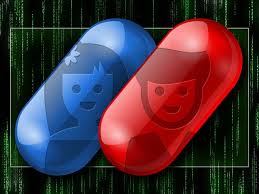11520 Education

In the dynamic landscape of education, innovation is key to keeping pace with the evolving needs of society. As we stand on the brink of a new era, marked by technological advancements and shifting paradigms, the concept of 11520 education emerges as a beacon of possibility. Rooted in the idea of personalized, immersive learning experiences, 11520 education represents a seismic shift in how we approach teaching and learning. In this article, we delve into the depths of this transformative model, exploring its principles, benefits, and implications for the future of education.
At its core, 11520 education embodies the notion of individualized learning pathways tailored to each student’s unique strengths, interests, and learning styles. Gone are the days of one-size-fits-all instruction; instead, learners are empowered to chart their own educational journeys, guided by personalized curricula and adaptive technologies. By harnessing the power of artificial intelligence, machine learning, and big data analytics, educators can gain invaluable insights into students’ learning patterns, enabling them to deliver targeted interventions and support.
Navigating the Future
One of the defining features of 11520 education is its emphasis on experiential learning and real-world application. Rather than passively absorbing information in a traditional classroom setting, students are actively engaged in hands-on projects, simulations, and collaborative activities. Whether it’s building robots, designing virtual worlds, or conducting scientific experiments, learners are encouraged to explore their passions and cultivate essential skills such as critical thinking, problem-solving, and creativity.
Moreover, 11520 education transcends the boundaries of traditional schooling, fostering a culture of lifelong learning that extends far beyond the classroom walls. Through online platforms, virtual communities, and immersive learning environments, individuals of all ages can access a wealth of educational resources and opportunities. Whether pursuing a new career path, mastering a new skill, or simply satisfying their curiosity, learners have the freedom to pursue knowledge on their own terms, at their own pace.
The benefits of 11520 education are manifold, both for individuals and society as a whole. By catering to diverse learning needs and preferences, this model has the potential to narrow the achievement gap and promote greater equity in education. Students who may have previously struggled in traditional academic settings can now thrive in environments that honor their unique strengths and talents. Likewise, high-achieving students are no longer held back by the constraints of a one-size-fits-all curriculum, but instead are challenged to reach their full potential.
Transformative Potential
Furthermore, 11520 education fosters a culture of innovation and entrepreneurship, empowering individuals to think creatively, take risks, and pursue their passions. By encouraging interdisciplinary collaboration and real-world problem-solving, this model cultivates the skills and mindsets needed to tackle the complex challenges of the 21st century. Whether it’s addressing climate change, advancing medical research, or building sustainable communities, the next generation of leaders and innovators will emerge from the crucible of 11520 education.
However, the transition to 11520 education is not without its challenges and considerations. As with any paradigm shift, there are questions surrounding implementation, scalability, and equity. How do we ensure that all students, regardless of background or socioeconomic status, have access to high-quality educational experiences? How do we train and support educators to effectively leverage technology and adapt their teaching practices to meet the needs of diverse learners? How do we navigate issues of data privacy, security, and ethics in an increasingly digital world?
Addressing these challenges will require a concerted effort from stakeholders across sectors, including policymakers, educators, technologists, and community leaders. Collaboration, innovation, and a shared commitment to equity will be essential to realizing the full potential of 11520 education. By harnessing the transformative power of technology and human ingenuity, we can create a future where learning knows no bounds and every individual has the opportunity to thrive.
Conclusion
11520 education represents a bold vision for the future of learning—one that is personalized, immersive, and inclusive. By harnessing the power of technology and embracing a culture of innovation, we can unlock new possibilities for individual growth, societal progress, and global collaboration. As we navigate the complexities of the 21st century, let us embrace the promise of 11520 education and chart a course towards a brighter, more equitable future for all.





